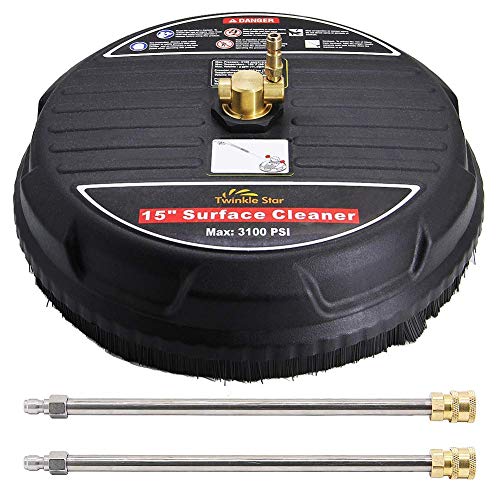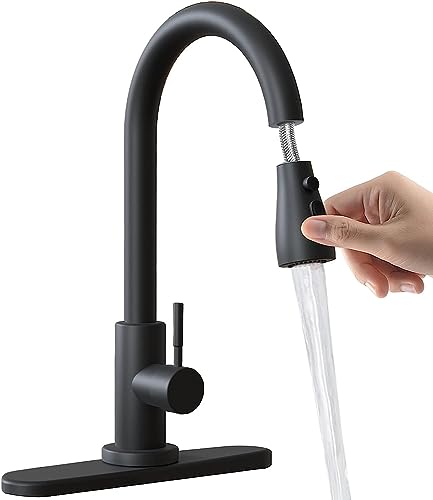Blog
How Many Decibels Is A Pressure Washer

When it comes to cleaning projects, pressure washers are incredibly popular tools. Whether you need to remove stubborn dirt and grime from your patio, driveway, or siding, a pressure washer can make the job much easier and faster. However, one thing that many people wonder about before purchasing a pressure washer is how loud it will be during operation. After all, nobody wants to deal with a tool that sounds like a jet engine!
So, how many decibels is a pressure washer? The answer can vary depending on the specific model and brand, but on average, pressure washers typically produce noise levels between 70 and 90 decibels. This range is comparable to the sound of a vacuum cleaner or a hairdryer. However, it’s important to keep in mind that these noise levels can be higher if you’re using a gas-powered pressure washer, as they tend to be louder than electric models.
It’s worth noting that prolonged exposure to loud noises can be damaging to your hearing. According to the Occupational Safety and Health Administration (OSHA), exposure to noise levels above 85 decibels for an extended period can cause permanent hearing loss. With that in mind, it’s crucial to take precautions when using a pressure washer, such as wearing hearing protection, especially if you’ll be operating the machine for an extended period.
In conclusion, while pressure washers can generate some noise during operation, they generally fall within the range of 70 to 90 decibels. This noise level is similar to everyday household appliances and shouldn’t cause concern for most users. However, it’s always a good idea to prioritize your hearing health and take appropriate precautions, such as wearing hearing protection, when using a pressure washer or any other loud tool.
Decibel Levels of Pressure Washers
When it comes to choosing a pressure washer, one important factor to consider is the noise level it produces. The noise generated by a pressure washer is typically measured in decibels (dB), and it can vary depending on the power and design of the machine.
Here are some common decibel levels you can expect from different types of pressure washers:
- Gas-powered pressure washers: These tend to be the loudest, with noise levels ranging from 80 dB to 100 dB. The noise is mainly due to the combustion engine that powers the washer. It is advisable to use hearing protection when operating a gas-powered pressure washer.
- Electric pressure washers: These are generally quieter than gas-powered ones, with noise levels ranging from 60 dB to 80 dB. The lower noise levels are due to the absence of a combustion engine. While they are still audible, they might not require hearing protection in most cases.
- Commercial-grade pressure washers: These heavy-duty machines are often used in industrial settings and tend to produce higher noise levels. Noise levels can range from 90 dB to 110 dB, depending on the specific model and power. Hearing protection is strongly recommended when using commercial-grade pressure washers.
It’s worth noting that decibel levels can be subjective and vary depending on the distance from the source and the surrounding environment. Additionally, continuous exposure to high decibel levels can damage your hearing, so it’s important to take appropriate precautions, such as using hearing protection.
When purchasing a pressure washer, it’s a good idea to check the decibel level specification provided by the manufacturer. This will help you choose a machine that fits your noise requirements and allows you to complete your cleaning tasks comfortably and safely.
How Loud are Pressure Washers?
Pressure washers can produce varying levels of noise depending on the model and the specific application. It is important to consider the noise level when using a pressure washer, as prolonged exposure to high decibel levels can cause hearing damage or loss.
The noise level produced by a pressure washer is typically measured in decibels (dB). A decibel is a unit used to measure the intensity of sound. The higher the decibel level, the louder the sound is perceived to be.
On average, a standard residential pressure washer can produce noise levels ranging from 70 to 90 decibels, which is equivalent to the sound of a busy street or a vacuum cleaner. Industrial or commercial-grade pressure washers can generate even higher noise levels, reaching up to 100 decibels or more.
It is important to note that noise levels can also be affected by factors such as the distance from the pressure washer, the surrounding environment, and the type of surface being cleaned. For example, using a pressure washer in a closed or enclosed space can result in higher noise levels due to the reverberation of sound waves.
To protect yourself from excessive noise exposure when using a pressure washer, it is recommended to wear hearing protection such as earplugs or earmuffs. Additionally, it is advisable to limit the duration of exposure and take breaks when using a pressure washer for extended periods of time.
When purchasing a pressure washer, you may want to consider models with noise-reducing features such as insulated enclosures or mufflers. These features can help minimize noise levels and provide a more comfortable user experience.
Overall, it is important to be aware of the noise levels produced by pressure washers and take necessary precautions to protect your hearing. By understanding the decibel levels and implementing safety measures, you can enjoy the benefits of a pressure washer while minimizing the risk of hearing damage.
Factors Affecting the Noise Level of Pressure Washers
Pressure washers are powerful cleaning machines that produce a significant amount of noise during operation. The noise level of a pressure washer can vary based on several factors:
1. Engine Type: The type of engine used in the pressure washer can greatly influence the noise level. Gas-powered pressure washers typically produce more noise compared to electric ones. The combustion process in the gas-powered engines generates more sound, contributing to a higher decibel level.
2. Engine Size: The size of the engine can also impact the noise level. Larger engines tend to produce more noise due to their higher horsepower and increased displacement.
3. Pump Type: The design and quality of the pump can affect the noise level as well. Axial pumps, commonly found in residential pressure washers, are generally quieter than triplex pumps used in commercial-grade machines.
4. Pressure Rating: The pressure rating of the pressure washer can influence the noise level. Machines with higher pressure ratings often produce more noise because they require more power to generate the increased pressure.
5. Accessories: The attachments and accessories used with the pressure washer can also impact the noise level. Nozzle types, hose length, and spray patterns can contribute to increased noise levels during operation.
6. Distance from the Source: The distance from the pressure washer can affect the perceived noise level. As the distance increases, the noise tends to become less intense.
7. Enclosure or Insulation: The presence of an enclosure or insulation around the pressure washer can help reduce the noise level. Some pressure washers come with built-in enclosures or noise-dampening materials to minimize the sound produced during operation.
8. Maintenance: Regular maintenance, such as cleaning or replacing worn-out parts, can help keep the noise level of the pressure washer at a minimum. Lubricating moving components and ensuring proper alignment can contribute to reducing the noise produced.
In conclusion, the noise level of a pressure washer is influenced by various factors, including the engine type and size, pump type, pressure rating, accessories used, distance from the source, presence of an enclosure or insulation, and regular maintenance. Understanding these factors can help users select a pressure washer that suits their noise requirements and take appropriate measures to minimize the noise level during operation.
Choosing a Quiet Pressure Washer
When purchasing a pressure washer, one important factor to consider is the noise level it produces. Pressure washers are known for their loud operation, but if you’re looking for a quieter option, there are a few key features to keep in mind.
First, check the decibel rating of the pressure washer. Decibels (dB) measure the intensity of sound, and a lower dB rating indicates a quieter machine. Look for a pressure washer with a decibel rating below 70 dB, which is considered to be a quiet level of noise.
Another feature to look for is a sound-dampening system. Some pressure washers are designed with noise-reducing technology that helps minimize the sound produced during operation. These systems can significantly reduce the noise level and make your pressure washer quieter.
It’s also worth considering the type of motor the pressure washer uses. Electric pressure washers tend to be quieter than gas-powered ones because they have less powerful engines. If noise is a concern for you, an electric pressure washer may be a more suitable choice.
Additionally, consider the environment in which you’ll be using the pressure washer. If you’ll be using it in a residential area or close to neighbors, opting for a quieter model is courteous and can help maintain good relations. On the other hand, if you’ll be using it in an industrial or remote area, noise may not be as much of a concern.
In conclusion, choosing a quiet pressure washer involves considering the decibel rating, looking for a sound-dampening system, and selecting the appropriate type of motor. By taking these factors into account, you can find a pressure washer that meets your cleaning needs while minimizing noise pollution.
Questions and answers
What is a decibel?
A decibel (dB) is a unit used to measure the intensity of sound or the power level of an electrical signal.
How loud is a pressure washer?
A pressure washer can produce noise levels ranging from 70 to 100 decibels, depending on the model and settings. This is comparable to the noise level of a running lawnmower.
What factors affect the noise level of a pressure washer?
The noise level of a pressure washer can be influenced by various factors, including the power of the motor, the design of the machine, the distance from the source, and the type of surface being cleaned.
Are there any ways to reduce the noise of a pressure washer?
Yes, there are several ways to minimize the noise produced by a pressure washer. These include using noise-reducing accessories, such as mufflers or sound enclosures, adjusting the pressure and flow rate settings, and maintaining proper maintenance and lubrication of the machine.
Can prolonged exposure to a pressure washer’s noise level cause hearing damage?
Yes, prolonged exposure to noise levels above 85 decibels can lead to hearing damage over time. Therefore, it is recommended to wear hearing protection, such as earplugs or earmuffs, when using a pressure washer for an extended period.
Recent Posts
-
What To Use To Clean Vinyl House Pressure Washer
May 19, 2024 -
Does A Pressure Washer Need Water Pressure To Start
May 19, 2024 -
When Can You Stain A Deck After Pressure Washing
May 19, 2024 -
How To Take A Water Pump Off A Pressure Washer
May 18, 2024 -
What’s The Going Rate To Pressure Wash A Sidewalk
May 18, 2024
















